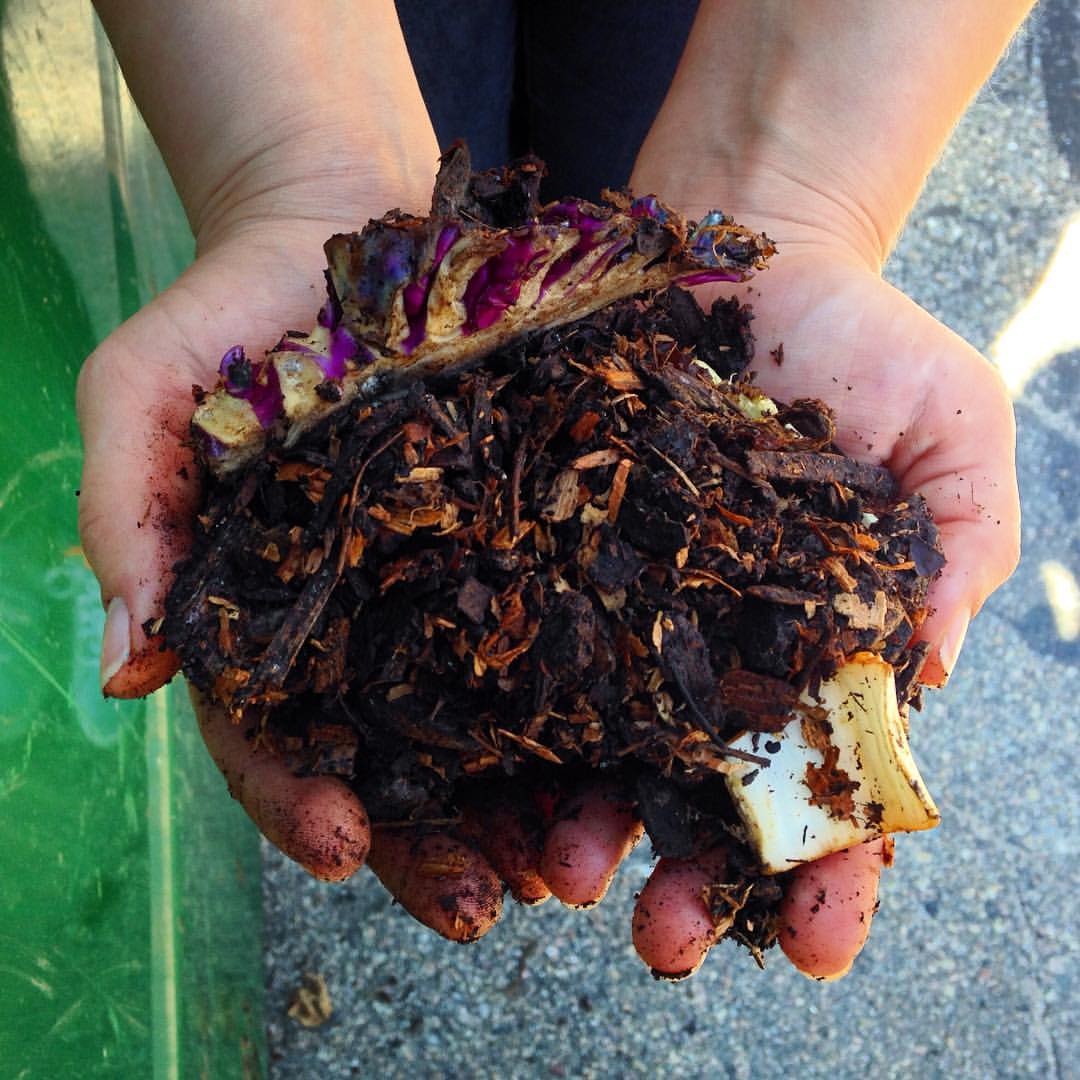The Greeley Solution: Compost, Repurpose & Educate
In 2016, the Greeley School District started a compost program. The effort, run by their Farm to School Program, composts the scraps generated from produce processing and meal production at the school district’s Central Production Kitchen.
There is interest in productive waste management and food waste prevention in nearly every department, and at every school within our district. The motivation came from within, from staff members who are motivated to find solutions to daily operational challenges.
– Natalie Rehurek, Food Hub Manager

Compost
The Farm to School Program runs five 168-gallon compost tumblers that are loaded with food scraps daily. (Excluding the days between Thanksgiving Break and Spring break as temperatures are too cold for the microbes and bacteria to work effectively.) To date, their record for the most organic waste added in one day is 65 gallons.
Repurpose
The food scraps and nitrogen-rich materials are balanced by carbon-rich wood chips (donated by a local tree trimming company). And each drum is rotated at least one full revolution every day during the work week. At the end of five weeks, the finished compost is unloaded, sifted and delivered to school gardens.
Twelve schools in the district have on-site gardens and each receives deliveries of compost. The students are involved with the unloading and distribution.
Additionally, students at Greeley West High School participating in their thriving National FFA Organization, collect food from the cafeteria and work with the kitchen manager to collect salad bar waste to reuse as animal feed for their livestock.
Educate
Roughly six schools, mainly at the elementary level, host and establish “worm bins” with the Farm to School team. The vermicompost bins are a fantastic way for the students to observe the decomposition process and learn about composting and its benefits. They are also involved with the establishment and management of their classroom bin.
Older students in the district get involved by working on their school garden. They observe and learn the benefits that compost adds to the soil and compare the plants to others grown in soil without mulch or amended with compost.
To date, the program has resulted in 1,000 gallons of food scraps and organic materials diverted from landfills annually, community partnerships, compost for school gardens and educational opportunities for students, staff and faculty.
Learn more about child nutrition programs at HungerFreeColorado.org.
